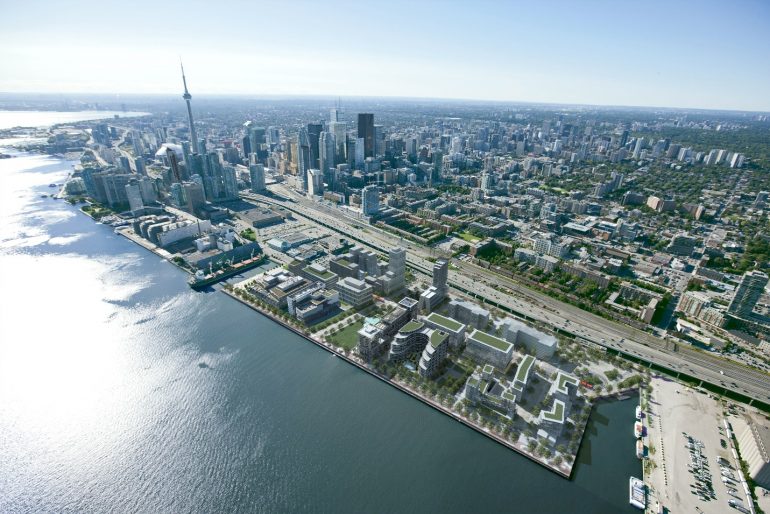On the latest episode of TVO’s The Agenda, Steve Paikin hosted a debate on Sidewalk Labs’ plan to rebuild Toronto’s waterfront area using data, artificial intelligence, and robots.
The segment featured guests including Dr. Ann Cavoukian, expert-in-residence at Ryerson University’s Privacy by Design Centre of Excellence; Christoper Hume, columnist at the Toronto Star and Toronto Storeys; and Bianca Wylie, head of the Open Data Institute in Toronto and an associate at Open North. The discussion centred around addressing the question: is this good news, or too good to be true?
“When we talk about tech and infrastructure and data, it’s abstract. It’s really hard for any of us to get our head around this stuff enough to wait and see.”
– Bianca Wylie
Google’s Sidewalk Labs has committed $62 million to an initial phase of the project, which includes working with Waterfront Toronto over the next year on long-range planning for the 12-acre site, which is an attempt at designing, testing, and building new technologies for a smart city.
The segment started off by defining smart cities as technology being used to accelerate services, facilitate transportation measures, planning, and infrastructure. It then went on to discuss the potential benefits and risks associated with this project.
For Cavoukian, the focus should be using the strength of technology while paying a lot of attention to the protection of the residents’ privacy and security. She said Sidewalk Labs reached out to her to monitor all elements of privacy, which is out of the norm. She sees this project as a chance for Toronto to be a leader in shining a light on the importance of privacy and data components of building a smart city.
“What my role will be is embedding privacy-protective measures into the design of what they are proposing. We don’t want this to become a tracking exercise where your comings and goings are part of the data that is collected and then used in any kind of surveillance. To me, that is the greatest fear and that is something we can ensure will be avoided.”
Hume believes that Sidewalk Labs is using this project as an opportunity to figure out the services, techniques, and the intellectual property they can own or share with the city and how they will apply this system to other cities. He sees the flexibility built into the structure of the modular construction as its biggest asset.
“The conversation has been about the fact that they are are going to come and take over this city. I think that is somewhat overstated, and these fears are exaggerated.”
– Christopher Hume
“The conversation has been about the fact that this is Google’s Trojan horse, and that they are are going to come and take over this city. I think that is somewhat overstated, and these fears are exaggerated. We are going to have to trust Waterfront Toronto; having covered them for years, I am confident in them,” Hume said. “I think the reason that Sidewalk Labs got the contract is because they came up with the best proposal. Even though there are going to be lots and lots of issues, I’m sure we will talk about them. I think because Waterfront Toronto is part of it, they are urbanists, they are technologists, this is something we should be excited about.”
According to Wylie, the three levels of government should be thinking about different ways to do this without Google. She explains that there is a risk in working with Google because technology — in particular big tech — is way ahead of the government in terms of understanding technology, working on technology, and figuring out ways to make money using technology.
Her suggestion is that instead of a company taking data and using it to build products and services that they later sell back to the residents, the intellectual property and the value of data should belong to residents. She goes on to argue that working with a large company that deals with proprietary solutions is not the only way to engage with the private sector.
“When we talk about bridges, we understand what we are talking about because we have all seen one and run across one. When we talk about tech and infrastructure and data, it’s abstract. It’s really hard for any of us to get our head around this stuff enough to wait and see,” Wylie said. “A year sounds like a long time; it’s not a long time when you consider how much legislation is out of date and behind all of this technology. A lot of our legislation on all levels of government was written before we started to use products and services like we do now. So we can’t expect them to contain and direct these kinds of things.”
All of the guests agree that technology is an essential part of the development of the city, even though they have varying opinions on this particular project and how it is should be executed.
You can watch the full segment here.

